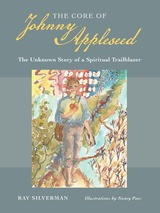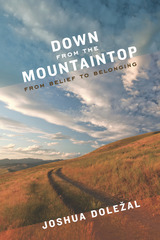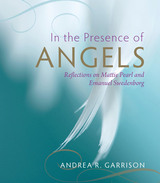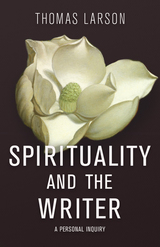
In order to understand the nature of pain, Anna undertakes a meditation practice. We tend to think of pain as self-absorbing and exclusively our own ("my pain," "I am in pain"). In distinction, Sharon Cameron’s Anna comes to explore pain as common property, and as the basis for a radically reconceived selfhood. Resisting the limitations of memoir, Beautiful Work speaks from experience and simultaneously releases it from the closed shell of personal ownership. Outside of the not quite inevitable stories we tell about it, experience is less protected, less compromised, and more vivid than could be supposed.
Beautiful Work brings to bear the same interest in consciousness and intersubjectivity that characterizes Cameron’s other work.

Recent biographies of John Chapman, better known as Johnny Appleseed, have portrayed him as anything from a schizophrenic wandering ascetic to a hedonistic pleasure-seeker. But who was the real man behind the misconceptions?
In this spiritual biography, Ray Silverman explores the stories and the popular misconceptions about Johnny Appleseed as well as the truths behind the legends. As a businessman, Chapman owned nineteen nurseries and twenty other land holdings throughout Pennsylvania, Ohio, and Indiana, brokering deals that belie the popular image of him as a wandering nomad with a tin pot on his head. But it is only once we talk about Chapman’s spiritual convictions that we come to the core of who he was: a thoughtful and also joyful Christian who was deeply moved by the writings of Emanuel Swedenborg.
The picture that emerges is of a lighthearted person whose convictions led him to seek harmony not only in nature but in the spiritual realms also—and to share his bounty with as many people as he could.
For more than a decade, Doležal taught in the Midwest throughout the school year but returned to Montana and Idaho in the summers to work as a firefighter and wilderness ranger. He reveled in the life of the body and the purifying effects of isolation and nature, believing he had found transcendence. Yet his summers tied him even more to the mountain landscape, fueling his sense of exile on the plains.
It took falling in love, marrying, and starting a family in Iowa to allow Doležal to fully examine his desire for a spiritual mountaintop from which to view the world. In doing so, he undergoes a fundamental redefinition of the nature of home and belonging. He learns to accept the plains on their own terms, moving from condemnation to acceptance and from isolation to community. Coming down from the mountaintop means opening himself to relationships, grounding himself as a husband, father, and gardener who learns that where things grow, the grower also takes root.

In October 2004, Andrea Garrison’s mother, Mattie Pearl, passed into the spiritual world. The weeks leading up to her crossing were a powerful time for Andrea and the rest of her family as Mattie Pearl shared her love, her insights, and her visions of heaven with those around her.
Andrea knew from the time she was a little girl that there was a spiritual reality beyond what we could see, and her mother encouraged her to explore different understandings of the Divine. As an adult, Andrea encountered the writings of Emanuel Swedenborg and was struck by the similarities between his theology and her experiences. Her quest to find others who knew about the Swedish mystic led her to new friends and, ultimately, a deeper exploration of her family history.
Originally published as The Crossing Over of Mattie Pearl, this expanded edition tells more about Andrea’s family history, including the role her father played in her life, as well as her reflections on Emanuel Swedenborg. Anyone who has mourned the loss of a loved one or been curious about the other side will be inspired and uplifted by this true story of a remarkable woman.

Today, the surprisingly elastic form of the memoir embraces subjects that include dying, illness, loss, relationships, and self-awareness. Writing to reveal the inner self—the pilgrimage into one’s spiritual and/or religious nature—is a primary calling. Contemporary memoirists are exploring this field with innovative storytelling, rigorous craft, and new styles of confessional authorship. Now, Thomas Larson brings his expertise as a critic, reader, and teacher to the boldly evolving and improvisatory world of spiritual literature.
In his book-length essay Spirituality and the Writer, Larson surveys the literary insights of authors old and new who have shaped religious autobiography and spiritual memoir—from Augustine to Thomas Merton, from Peter Matthiessen to Cheryl Strayed. He holds them to an exacting standard: they must render transcendent experience in the writing itself. Only when the writer’s craft prevails can the fleeting and profound personal truths of the spirit be captured. Like its predecessor, Larson’s The Memoir and the Memoirist,Spirituality and the Writer will find a home in writing classrooms and book groups, and be a resource for students, teachers, and writers who seek guidance with exploring their spiritual lives.
READERS
Browse our collection.
PUBLISHERS
See BiblioVault's publisher services.
STUDENT SERVICES
Files for college accessibility offices.
UChicago Accessibility Resources
home | accessibility | search | about | contact us
BiblioVault ® 2001 - 2024
The University of Chicago Press









